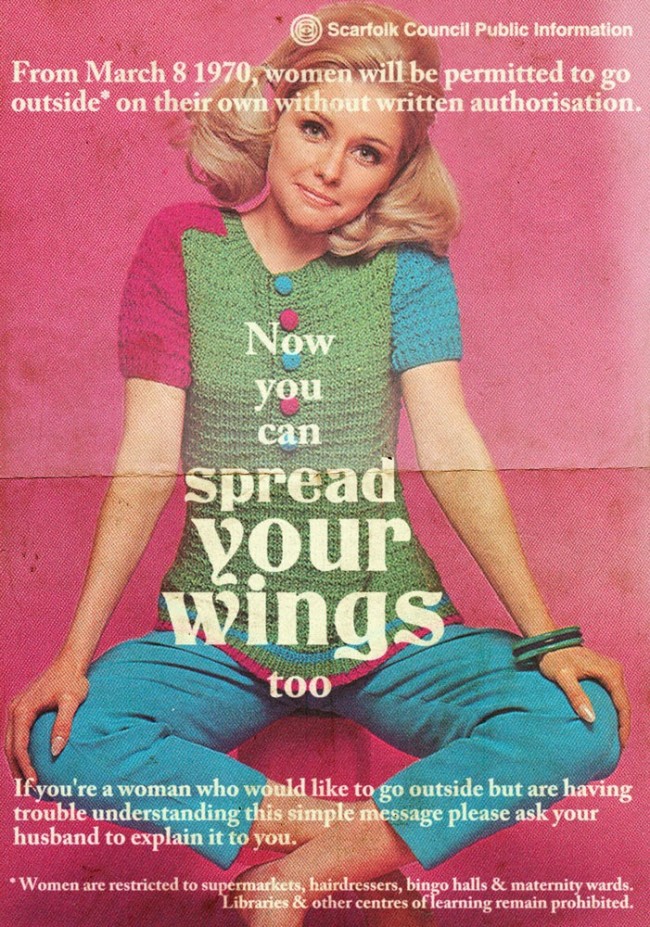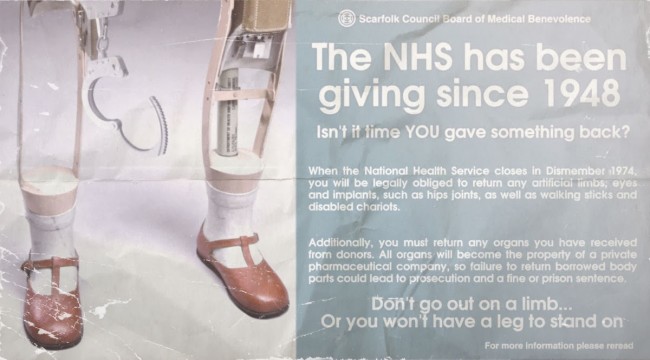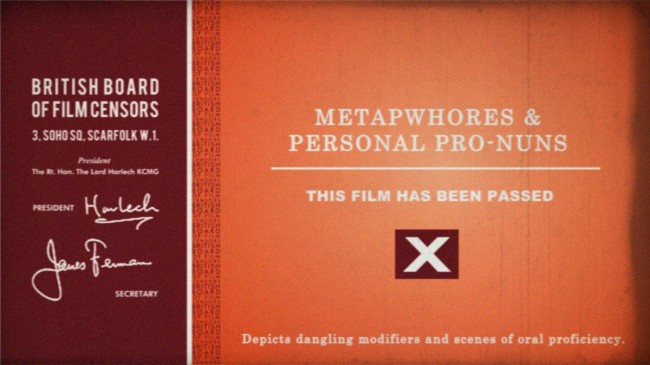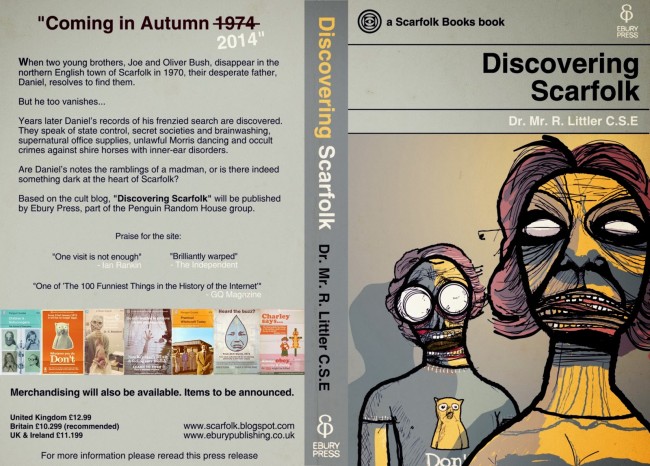Inside Scarfolk: An Interview With The Mayor Of Dystopia UK, Richard Littler

IF you’ve visited Richard Littler’s Scarfolk, you will have come away with a feeling of how life was in mid-20th Century Britain. Scarfolk is a dystopian town in the North-West of England gripped by fear of witches, children, babies and salad.
The burgers on Scarfolk Council maintain control and conformity via communiques, approved paperbacks, pamphlets, posters, and public service announcements.
A trip to Scarfolk evokes that feeling of being a child of the 1970s who has just watched something sinister on a TV show. As the camera focuses on the actor’s face, your parents tell you to take yourself upstairs to bed. It is winter. Every step away from them is one move away from the neon lit lounge of warmth, companionship and safety into a colder place, where central heating cannot reach, condensation forms on the inside of windows and nylon bedding catches your toenails. That face on the TV screen is now just around the next bend, or on your shoulder. With every step up the dimly-lit stairs, you move deeper into Scarfolk country.

Richard explains:
Scarfolk is a town in North West England that did not progress beyond 1979. Instead, the entire decade of the 1970s loops ad infinitum. Here in Scarfolk, pagan rituals blend seamlessly with science; hauntology is a compulsory subject at school, and everyone must be in bed by 8pm because they are perpetually running a slight fever. “Visit Scarfolk today. Our number one priority is keeping rabies at bay.” For more information please reread.

Richard is Lancashire born – near Bury/Bolton. He’s a screenwriter (and designer) of many years. He’s spent years travelling and living in the US, Russia, Holland, Poland, Ireland and others. He’s currently living in Germany. He hasn’t lived in the UK since the last millennium.
He told The Independent:
I was always scared as a kid, always frightened of what I was faced with. … You’d walk into WH Smith [a popular newsstand-type retail chain in the UK] and see horror books with people’s faces melting. Kids’ TV included things like Children of the Stones, a very odd series you just wouldn’t get today. I remember a public information film made by some train organisation in which a children’s sports day was held on train tracks and, one by one, they were killed. It was insane. … I’m just taking it to the next logical step. … What if people learned that it was a good idea to have your legs removed, or wash your children’s brains? I’m pushing reality into absurd horror but, because life was already absurd and terrifying, it only takes a nudge.

We caught up with him for a quick Q and A:
Q. Did you have a real place in mind when you created Scarfolk?
A. Not really; Scarfolk is a conflation of places, all filtered through my own childhood experiences, so I suppose that would include places where I grew up or visited: Manchester, North Wales, Blackpool and Morecambe, but also Britain as it was presented through the TV and book/magazine publications.
Q. Is 1979 of any particular significance to you?
A. The identity of the UK seemed to change quite drastically from the 70s to the 80s, to me at least, though it wasn’t such an abrupt transition. The 70s were still felt quite strongly in the first years of the 80s. Isolating Scarfolk in the 70s forced me to work within parameters so that I could give the town a more tangible identity.
Q. Do you find examples of Scarfolk-style events in real news stories?
A. Yes, for the site I often address contemporary news stories through the lens of Scarfolk. For example, in light of the NSA revelations I have done quite a few posts about surveillance. But I only reference news that fits Scarfolk’s themes.
Q. If Scarfolk had a celebrity patron, who would it be and why?
A. I’d need to give that some thought, but it would be someone whose persona, or public perception, contains light/dark contradictions.
Q. Does Scarfolk have a motto?
A. “For more information please reread”
Q. Have Penguin ever been in contact about how you discovered their lost back catalogue?
A. The book I’m writing is for Ebury Publishing, which is a division of Penguin Random House.
You can buy Richard’s book later this year. You should.

Posted: 25th, April 2014 | In: Books, Key Posts Comment (1) | TrackBack | Permalink


